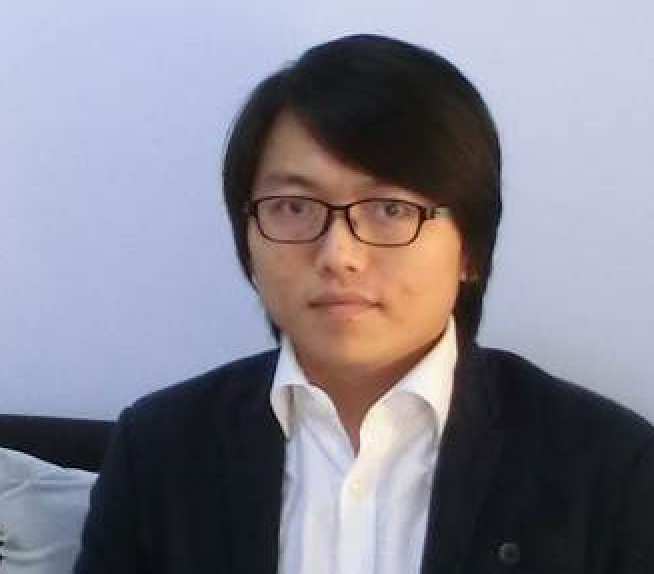Ning Chen (PhD Chemical Engineering, 2012) chats to us about his time at Imperial and his career since returning to China, first with the Beijing Genomics Institute, and now with his own company Promegene, which offers gene sequencing technology services to universities and hospitals.

Why did you choose to study at Imperial?
"I was at Tsinghua University for my undergraduate, and my decision to go to Imperial for my PhD was quite different to most of my friends, who mainly went to the USA to study.
I'm a chemical engineer, particularly process engineering, but I'm actually more of a scientist than an engineer, and Imperial was better at the science! The Department of Chemical Engineering is actually the best in Europe, which was obviously really attractive, as was the research direction the department pursued.
I also asked my undergraduate supervisor what he would recommend, and he said that Imperial was the best. My previous supervisor was in fact an Imperial graduate too - so I've really got a strong connection with London. I still think of Imperial a lot, I made a lot of friends there, and a lot of them still live in London. One of the coolest things about going to Imperial was that my professors at Tsinghua are friends with academics at Imperial - it was nice to keep those links going."
What was your PhD about?
"I worked on an industrial product with a company called Ionza, a Swiss biotech company, which was a bit odd - it's more biological than engineering focussed. But I'm interested in process systems and renewal, which involve a lot of modelling, and there's not much difference when modelling a chemical or a biological product.
At Tsinghua I was looking at artificial immune systems, but I was only a part of a bigger product. When I came to Imperial I was working to model intercellular metabolism, which is used to make antibodies. I think my experience was different to a lot of my friends' experiences in that respect - I spent most of my time on my own project, rather than having to spend a lot of time on your supervisor's project."
How would you describe your studies?
"It was hard - I was at home studying a lot. But it's good to work hard! I'd say that the most important thing I learnt was how to conduct research.
I was my supervisor's first PhD student which was pretty special - we got to start up the lab from zero, so it was empty at the start and we gradually acquired more stuff - it was actually really interesting to learn how to get new equipment properly through the safety department! For example it took us six months to get a nitrogen tank installed...
I remember, in 2012, when I submitted my viva and was waiting for the result and there was a fire in the Department for Chemical Engineering. It was actually a few of my friends' lab, and it was a big loss for the department - it affected way more than just one lab. But the protocol that I saw the safety department follow, and the structures that were in place, were just great - especially when I compare it to some of the labs I see here, where there are electrical wires exposed! It's definitely something that Chinese labs need to improve on."
What did you do after graduating?
"I spent three months in Beijing, then moved back to Shenzhen to work for the Beijing Genomics Institute, which is one of the biggest gene sequencing companies - it's a bit like a factory! Now I've started my own company called Promegene, with some of my former colleagues from the Institute.
We have lots of gene sequencing technology, and offer those services to universities and hospitals - particularly when they want to do projects but can't do certain bits. So far we've worked on things that are part of the Human Gnomics Project and the Metagenomics project. I'm working with some great people - some of my colleagues wrote the paper that appeared on the cover of Nature in 2012 that was about gut bacteria and type two diabetes, as well as the infamous 2011 cucumber story in Germany!"
How do you feel about leaving London?
"I really loved London, and it's so roomy compared to China, but here everything is improving at such a fast pace, that it's where I felt I should be."
What does a typical day look like for you now?
"The cool thing about doing research here for me now, is that I don't need to stick to the nine to five rules - the main thing is just to get the projects finished. Other people I know who work for state owned enterprises aren't as busy as we are at Promegene - they just do their hours and go, but I don't want to relax in life like that. The average age at my company is 30, and everyone wants to do something - it's not about making money, it's more about using the energy of growth that's here to do something."
What would you say to prospective students thinking of applying to Imperial?
"I'd really encourage it, it's a really cool environment, and life at imperial is happy. The one thing I'd say is that Imperial is really well recognised in most places but not everywhere in China - we were ranked number two in the world recently, and everyone should know that!"
Building a lab
"I was my supervisor's first PhD student which was pretty special - we got to start up the lab from zero, so it was empty at the start and we gradually acquired more stuff - it was actually really interesting to learn how to get new equipment properly through the safety department! For example it took us six months to get a nitrogen tank installed..."